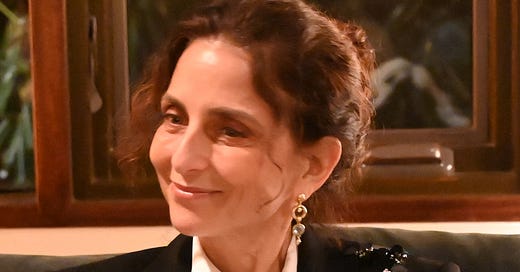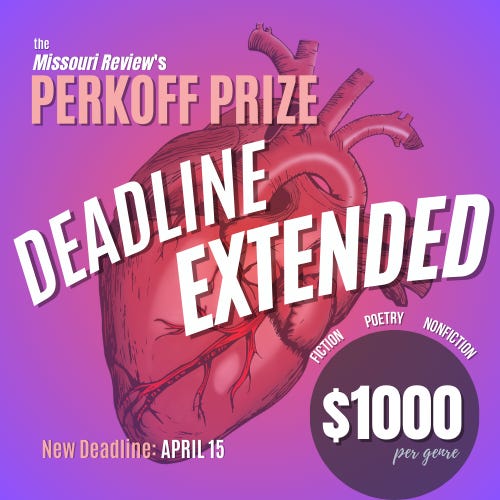A Conversation with Marina Hatsopoulos
In which TMR intern Marisa Marti catches up with Marina Hatsopoulos, the 2023 Perkoff Prize Nonfiction Winner
Marisa Marti: What drew you to creative non-fiction?
Marina Hastopoulos: Things happen in my life that make me write. While I’ve always loved writing short stories, and work hard on them, somehow these personal essays just organically come out. I try to utilize the craft I’ve learned about writing stories in my essays, although they are distinct genres. I relish the editing process, because I make personal discoveries about what’s happening in my subconscious. I can see certain things so starkly after I’ve written about them.
MM: How do you approach writing about difficult and emotionally heavy topics? How do you decide which parts to incorporate or leave out, especially in your Perkoff Prize-winning piece “Breathe”?
MH: I always worry about sounding melodramatic, so I try to veer away from “emotion” words and instead try to immerse myself in the sensory detail. I do this often even while I’m in the experience itself, running through the five senses to articulate in my mind what’s happening. In the case of “Breathe,” I was not emotionally ready to write the essay at the time, but I knew I would want to write about it later, so I took notes in order to keep track of the order of events, my observations, our conversations, tiny details, and funny moments. Months later, when I had some distance from the events, I read my notes, which brought back many memories that I might easily have forgotten. Then I started writing, and it just flowed. I try hard at that stage not to filter, and to just write everything down. When the draft is complete, I read it through to understand what my point is, and then I filter out details that are irrelevant, confusing, or misleading. (Creative nonfiction has an inherent logic to it that reality lacks!) I try not to worry about what readers will think of me, but I’m very sensitive to how the subjects of the essay will feel about reading it, so that leads to some material filtering as well. Finally, I try to recall any other details that might support my point, even in an abstract, metaphorical way.
MM: What led you to submit “Breathe” and when deciding where to submit your work, what factors did/do you consider?
MH: I try hard to keep my ego in check, and to always be writing from my center, but at the end of the day it’s wildly gratifying to have my writing be read by others—especially something as personal and emotional as the experience in “Breathe.” I’ve been reading Missouri Review for many years and admire the work it publishes, so I knew I’d be honored to have my writing in the company of its other pieces. It’s recognized as a top tier journal which means its readership cares about quality writing. Writing is a solitary endeavor without six-month merit reviews, so winning a prize and publication by Missouri Review represents independent validation. Finally, there is something very special about seeing my writing in print, on paper. When I saw the Perkoff Prize was focused on issues of health, I was really excited to submit, but at the time, my draft wasn’t ready. (The way I determine this is whether I can read through the whole essay without making edits.) I’d made the mistake in the past of submitting prematurely, so I forced myself not to submit by the deadline and told myself I’d submit a year later. When the submission date was later extended, I took it as a sign and worked hard to finish editing in time to submit. What a thrill to have won the prize! I loved working with the team at Missouri Review, cleaning up language and making it the best piece it could be. And finally, I loved seeing an image at the top of the essay and having the opportunity to write about the process as a post-script to the essay. The whole experience was a big deal, worthy of everything I put into it.
As for new work, I’m currently working on a novel, which is a monumental task that is so different than writing a short story or essay. I’m also working on some short pieces—essays as well as short stories and flash.




